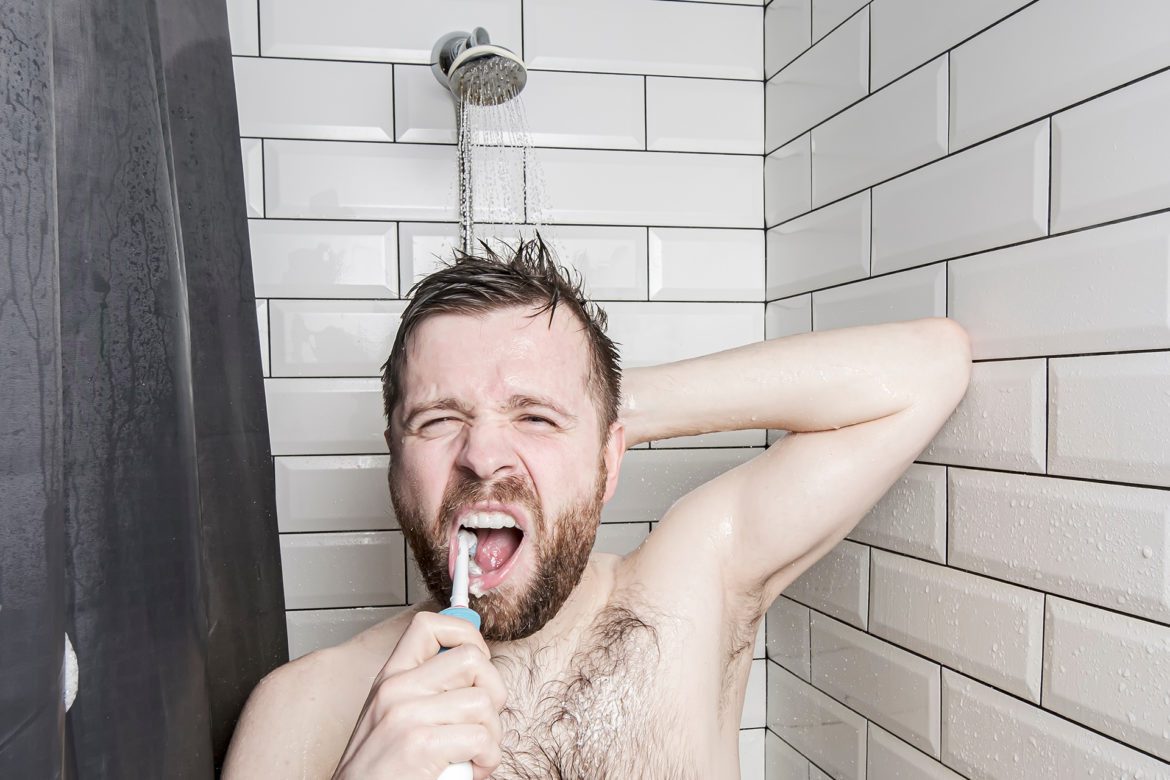Brushing your teeth while you’re showering might just speed up your morning routine – but now dentists are warning that it might not be the safest way to get a sparkling smile.
Dental professionals have shared three reasons why cleaning your teeth in the shower isn’t great for your hygiene with Fox News Digital – so, here’s what you need to know next time you’re tempted to skip the sink and take your toothbrush in the shower with you.
Heat damages your toothbrush
New York-based dental surgeon Parul Dua Makkar told the outlet that high temperatures and steam can actually damage your toothbrush.
“Exposing a toothbrush to heat and humidity weakens the bristles and make it ineffective,” Makkar said.
Advertisement
“Always store a toothbrush in a cool dry place, away from the shower and the toilet as bacteria love to multiply in wet and humid conditions.”
In New Zealand, dentists recommend that you get a new toothbrush every three months – sooner if the bristles appear to have worn out. For optimal oral hygiene, you should brush twice a day as well as flossing to prevent plaque buildup.
Showers increase the risk of cross-contamination
Canada-based cosmetic and restorative dentist Dr Arun Narang told Fox News Digital that brushing your teeth in the shower can increase the risk of cross-contamination.
“Brushing your teeth in the shower may save time, but it exposes you to more bacteria,” Narang explained.
Advertisement
“Tubs and showers typically are ideal places for bacteria to grow because they are constantly wet, warm and sometimes shared with other family members.”
Putting down your toothbrush near the shower wall can cause bacteria to transfer to the bristles of your brush, which can then be transferred to your mouth the next time you brush.
Narang added that a bathroom sink doesn’t have this issue because you’re not standing in it like you do in the shower.
“Also, a sink doesn’t produce the steam a shower does, causing dampness.”
Even if you follow your shower brushing routine with a swig of mouthwash, it won’t necessarily remove all the bacteria, according to dentist Dr Fatima Khan from Houston, Texas.
Khan told the publication that while some mouthwash products claim to kill 99.9 per cent of bacteria in your mouth, “there are no long-term studies suggesting that using mouthwash will negate this effect [cross-contamination].”
In fact, antiseptic mouthwashes “do not discriminate between good and bad bacteria” and can strip away healthy bacteria as well, she added.
Showers increase the risk of cross-contamination
Canada-based cosmetic and restorative dentist Dr Arun Narang told Fox News Digital that brushing your teeth in the shower can increase the risk of cross-contamination.
“Brushing your teeth in the shower may save time, but it exposes you to more bacteria,” Narang explained.
Advertisement
“Tubs and showers typically are ideal places for bacteria to grow because they are constantly wet, warm and sometimes shared with other family members.”
Putting down your toothbrush near the shower wall can cause bacteria to transfer to the bristles of your brush, which can then be transferred to your mouth the next time you brush.
Narang added that a bathroom sink doesn’t have this issue because you’re not standing in it like you do in the shower.
“Also, a sink doesn’t produce the steam a shower does, causing dampness.”
Even if you follow your shower brushing routine with a swig of mouthwash, it won’t necessarily remove all the bacteria, according to dentist Dr Fatima Khan from Houston, Texas.
Khan told the publication that while some mouthwash products claim to kill 99.9 per cent of bacteria in your mouth, “there are no long-term studies suggesting that using mouthwash will negate this effect [cross-contamination].”
In fact, antiseptic mouthwashes “do not discriminate between good and bad bacteria” and can strip away healthy bacteria as well, she added.

